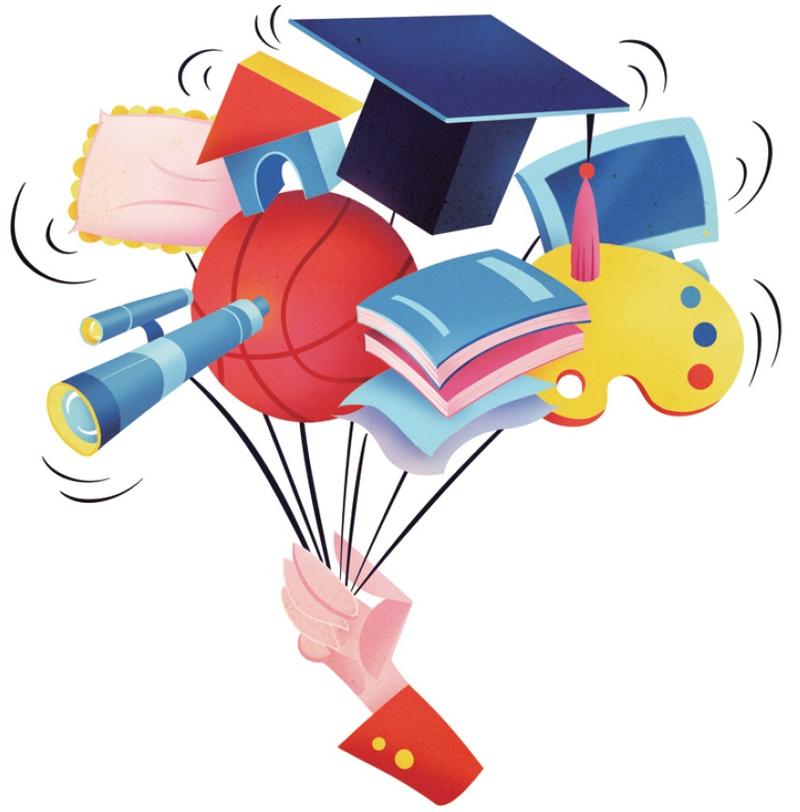Editor's Note: The Chinese people have always attached special importance to education. In the 20th century, China went through a long, arduous journey from one-teacher schools to world-class universities. And although China has achieved excellence in different fields including science and technology, what will be its education journey like in the rest of the 21st century? In the third of a series of commentaries on education, a senior journalist with China Daily searches for the answer:
 (MA XUEJING / CHINA DAILY)
(MA XUEJING / CHINA DAILY)
Since China has the world's largest education sector-the country has 270 million students, almost 80 percent of the entire population of the United States-it is understandable that it has many problems to address, especially because people still complain about one issue or the other despite the government increasing investment in education.
The results of surveys over the past years show that of all the reform programs, people appear to be least satisfied with education reforms, not least because education concerns every family, and being citizens of a country which attaches great importance to learning, the Chinese people have reason to be critical about the existing education system.
That the education system is not fair enough is the main complaint of many parents. Children in urban areas usually enjoy better education facilities than those in rural areas. Rural schools, in general, lack enough qualified teachers, partly because their salaries are lower than those of their urban counterparts. They also lack educational resources. And without the right guidance from good teachers, rural students have to work twice as hard as their peers in urban areas to pass the tough college entrance examination (or gaokao) in order to seek admission to a college.
The government pays special attention to these problems, and to address them, it has been investing huge amounts, so as to improve rural school facilities, provide rotation training for the teachers, increase rural teachers' salaries and require some normal university graduates to teach in rural schools for a few years before seeking jobs in cities. These efforts have proved effective, but they will take time to produce all the desired results. After all, the urban-rural disparity cannot be removed overnight.
Such an imbalance also exists in different regions which are at different stages of development. For example, Beijing has nearly 100 universities and Shanghai more than 60, and many of them are ranked among the country's top 100 universities. In addition, these universities get funds from both the central and local governments. And since big cities have more universities and a relatively small number of students, it is easier for high school graduates there to enroll in a local college.
To address this urban-rural imbalance, the government has adopted preferential policies for rural schools, requiring universities in education resource-rich areas to create a bigger quota for students from the country's less-developed regions as well as minority ethnic groups even if they have scored lower marks in gaokao. Still, the level of difficulty students face to enroll in a university remains different in different regions, inviting complaints from both students and their parents.
Another criticism that the education system faces is that it is excessively exam-oriented. Since Chinese, English and math are compulsory subjects in gaokao, all schools focus on teaching these subjects and, in the process, some neglect other subjects including physics, chemistry, history and politics. Indeed, physical education and humanities are part of the school curriculum, but their class hours are usually "stolen" by the three main subjects.
Also, to enable their students to score ever higher marks in important exams, many schools hold special after-school classes. And when the students are finally allowed to go home, they are given so much homework that they have to be awake till late at night to complete them.
Students from Japan and the Republic of Korea are known for studying long hours. A study, however, found that Chinese students spend 10 hours more on studies each week compared with their counterparts in Japan and the ROK.
Many experts say the exam-oriented education system is not conducive to the healthy development of students. They argue that neglecting other subjects will harm the overall physical and mental development of the students, and that overwork could, ironically, make them less efficient.
The education authorities have responded positively to such arguments by announcing this month that physical education and humanities will get as much priority as Chinese, English and math in gaokao. They have also forbidden after-school classes and asked schools to assign homework that require no more than a few hours to complete.
But while welcoming the new policy, many students and parents have pointed out that they are yet to feel the difference despite the implementation of the new policy. It seems schools are still playing hide-and-seek with the authorities, which shows how deep-rooted the problem of heavy homework and exam-oriented education is, and how much work has to be done to fully implement a good policy.
But the fact that the government has realized the problems and taken steps to deal with them gives us hope that a more balanced and efficient and fairer education system will eventually be established.
The author is former deputy editor-in-chief of China Daily.


